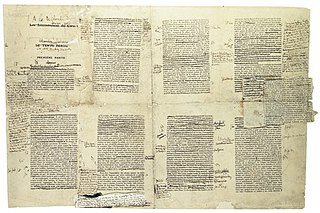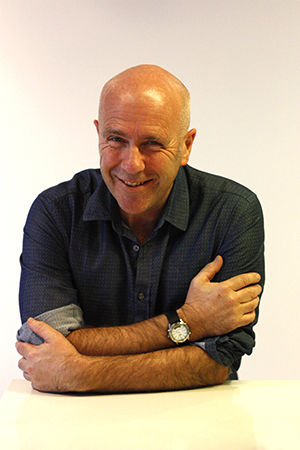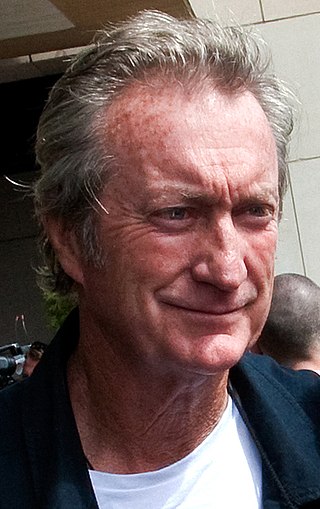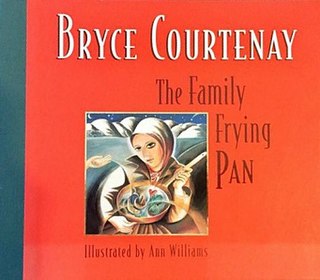
John Ernst Steinbeck was an American writer. He won the 1962 Nobel Prize in Literature "for his realistic and imaginative writings, combining as they do sympathetic humor and keen social perception". He has been called "a giant of American letters."

Thomas Michael Keneally, AO is an Australian novelist, playwright, essayist, and actor. He is best known for his non-fiction novel Schindler's Ark, the story of Oskar Schindler's rescue of Jews during the Holocaust, which won the Booker Prize in 1982. The book would later be adapted into Steven Spielberg's 1993 film Schindler's List, which won seven Academy Awards, including Best Picture.

In Search of Lost Time, first translated into English as Remembrance of Things Past, and sometimes referred to in French as La Recherche, is a novel in seven volumes by French author Marcel Proust. This early 20th-century work is his most prominent, known both for its length and its theme of involuntary memory. The most famous example of this is the "episode of the madeleine", which occurs early in the first volume.

Carl Hiaasen is an American journalist and novelist. He began his career as a newspaper reporter and by the late 1970s had begun writing novels in his spare time, both for adults and for middle grade readers. Two of his novels have been made into feature films, and one has been made into a TV series.

Portnoy's Complaint is a 1969 American novel by Philip Roth. Its success turned Roth into a major celebrity, sparking a storm of controversy over its explicit and candid treatment of sexuality, including detailed depictions of masturbation using various props including a piece of liver. The novel tells the humorous monologue of "a lust-ridden, mother-addicted young Jewish bachelor," who confesses to his psychoanalyst in "intimate, shameful detail, and coarse, abusive language."

Arthur Bryce Courtenay, was a South African-Australian advertising director and novelist. He is one of Australia's best-selling authors, notable for his book The Power of One.

The Combat Infantryman Badge (CIB) is a United States Army military decoration. The badge is awarded to infantrymen and Special Forces soldiers in the rank of colonel and below, who fought in active ground combat while assigned as members of either an Infantry or Special Forces unit of brigade size or smaller at any time after 6 December 1941. For those soldiers who are not members of an infantry, or Special Forces unit, the Combat Action Badge (CAB) is awarded instead. For soldiers with an MOS in the medical field they would, with the exception of a Special Forces Medical Sergeant (18D), receive the Combat Medical Badge. 18D Special Forces Medics would receive the Combat Infantryman badge instead.

Richard Miller Flanagan is an Australian writer, who has also worked as a film director and screenwriter. He won the 2014 Man Booker Prize for his novel The Narrow Road to the Deep North.

Bryan Neathway Brown AM is an Australian actor. He has performed in over eighty film and television projects since the late 1970s, both in his native Australia and abroad. Notable films include Breaker Morant (1980), Give My Regards to Broad Street (1984), F/X (1986), Tai-Pan (1986), Cocktail (1988), Gorillas in the Mist (1988), F/X2 (1991), Along Came Polly (2004), Australia (2008), Kill Me Three Times (2014) and Gods of Egypt (2016). He was nominated for a Golden Globe Award and an Emmy Award for his performance in the television miniseries The Thorn Birds (1983).
Stewart O'Nan is an American novelist.

A verse novel is a type of narrative poetry in which a novel-length narrative is told through the medium of poetry rather than prose. Either simple or complex stanzaic verse-forms may be used, but there is usually a large cast, multiple voices, dialogue, narration, description, and action in a novelistic manner.

Four Fires is a 2001 novel written by Bryce Courtenay.
For the British artist, Margaret Geddes (1914-1998), see Margaret Geddes (artist).

The Potato Factory is a 1995 fictionalised historical novel by Bryce Courtenay, which was made into a four-part miniseries in Australia in 2000. The book is the first in a three-part series, followed by Tommo & Hawk and Solomon's Song. The Potato Factory has been the subject of some controversy regarding its historical accuracy and its portrayal of Jewish characters.

The Family Frying Pan is a fixup novel written by Bryce Courtenay. It was first published in 1997, then re-written and reissued in 2001.
This article presents a list of the historical events and publications of Australian literature during 2012.

The Bone Clocks is a novel by British writer David Mitchell. It was long-listed for the Man Booker Prize 2014, and called one of the best novels of 2014 by Stephen King. The novel won the 2015 World Fantasy Award.
John Williamson Hooker was a New Zealand-born Australian novelist.
This article presents a list of the historical events and publications of Australian literature during 1995.














